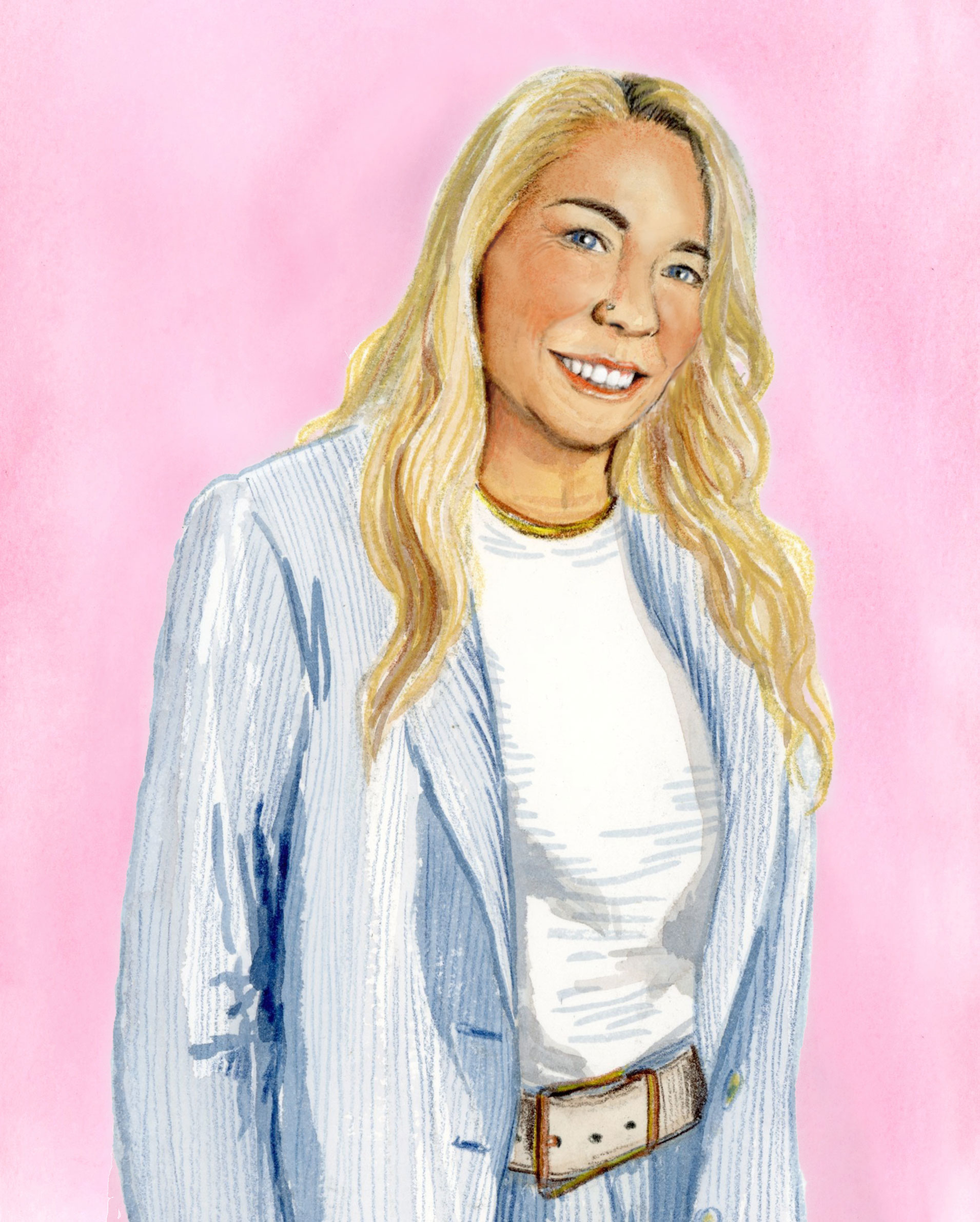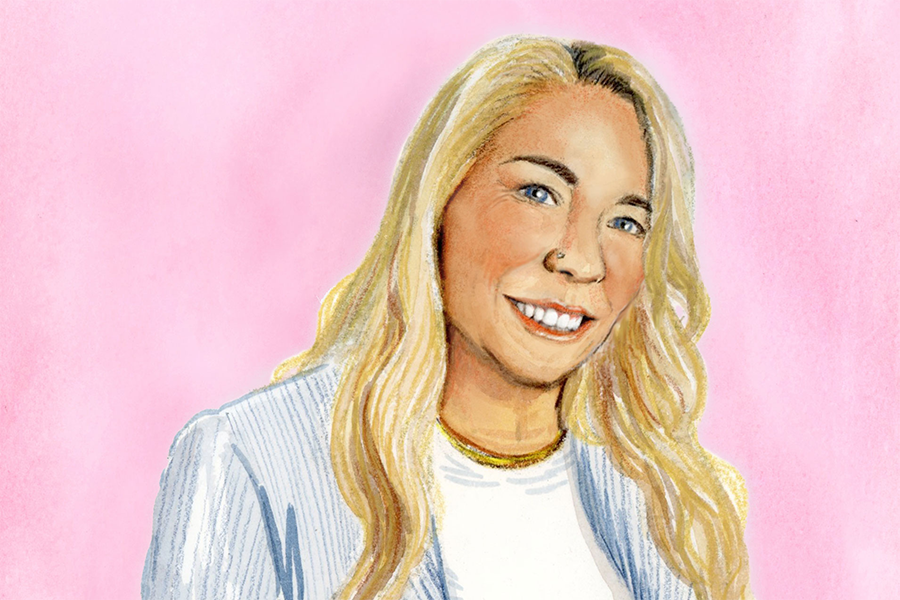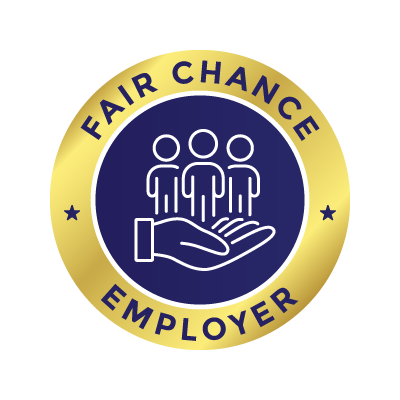Lara Love Hardin grew up in a home shaped by addiction, alcoholism, and violence. She later faced her own struggles with substance use, which led to her arrest and time in prison. After her release, Lara built a new life as an author, ghostwriter, and non-profit leader. Through her best-selling memoir, The Many Lives of Mama Love, she worked to highlight the challenges faced by those struggling with addiction, the need for reformation in the justice system, and the unique challenges faced by justice impacted mothers.
Lara’s Challenging Beginnings
Lara grew up in Massachusetts in a home where addiction, alcoholism, and violence were constant. To escape reality, Lara turned to books. As Lara says in her memoir, books were her “first addiction,” offering a safe place and escape from her life. Determined to escape the chaos, she left home right after high school, moving across the country to attend college. She continued on to graduate from college, earning an MFA in writing, and hoped her education would protect her from the dysfunction that shaped her childhood.
Lara’s first experiences with opioids came through doctors and dentists who offered pain medication freely. In the 1990s, it was common for doctors to distribute sample packs of pills, often handed out like candy. Lara found the pills gave her energy and focus. For a time, they made her feel funnier, braver, and more capable of keeping up with the demands of her growing family.
But over time, Lara found she needed more and more pills. By the end of the decade, Lara was taking extraordinary amounts of opioids just to feel normal. She described the compulsion as all-consuming, leaving her disconnected from others and increasingly alienated from the life, family, and business she was working to hold together. Her marriage fell apart and so did her life.
No more tomorrows
Lara eventually stopped using, completed a treatment program, and for six years, began engaging with the recovery community. She got remarried, started a business, and put her children into private school. But when her second husband relapsed and brought drugs into the house, Lara relapsed too. By this time, pills were becoming harder to come by and her addiction changed from pills to heroin.
Lara’s world grew smaller with each passing week. To keep up with her addiction, she began stealing from people close to her, taking cash from purses or using stolen credit cards. She knew it was wrong, but told herself she would “figure it out tomorrow.” But Lara ran out of tomorrows.
On election day in 2008, cop cars filled her culdesac and deputies came to her home. She found herself in handcuffs, as strangers from Child Protective Services arrived to take her son. It had been just 11 months since her relapse, and the weight of that moment made clear that everything had changed, and denial was no longer possible.

Lessons From The System
Later that year, Lara pled guilty to a long list of felony charges. She didn’t commit all of the crimes she was charged with, but felt like she had no choice but to plead guilty if she wanted to reunite with her youngest son. As part of her plea deal, she served a year in the county jail, from late 2008 to 2009. This experience was difficult, but through it, Lara was able to rediscover and hold on to the most important parts of herself.
Lara entered jail detoxing, ashamed, and convinced her life was over. One particularly dark night, she decided to take her own life. She believed it would be better for her children to have a dead parent rather than one in prison. She wrote her children a letter explaining her decision. Miraculously, she ended up falling asleep. The next day, she got word that CPS had placed her youngest son with her first husband and brothers. This gave Lara hope, because she knew her son was going to be ok. From there, her outlook began to brighten. Lara was able to find freedom in taking responsibility for herself and her fellow inmates.
Lara Returns to Writing
While she was incarcerated, Lara returned to writing. At first, she used her skills to help other women draft letters, writing to judges pleading for mercy, to exes seeking reunification, and anyone else her fellow inmates asked her to write. She realized she had a gift for putting someone else’s story into words, and this became her way to contribute to her community of incarcerated women. She also began writing short stories for herself, reconnecting with the practice that had once made sense of her world. Writing gave her purpose and helped her feel hopeful again.
Family
The most painful part of incarceration was being separated from her children. Lara’s youngest son was taken away the day she was arrested, and for a year she lived with the fear that she might lose her parental rights. Visits were difficult, but she fought to stay present in her children’s lives.
Visitation was complicated, but provided Lara with a lot of hope. In order to visit with her son, the other incarcerated women had to agree. She was touched by how they sacrificed their own limited freedom so she could see her son. Lara’s son would bring clothes with him during his visits, to try and move back in with his mom. Those moments reminded her that being a mother was still part of who she was, and she held tightly to that identity even when the system made it incredibly difficult.
The Many Lives of Lara Love Hardin
Jail stripped away much of Lara’s outward identity. She went from being a mother, a business owner, and a community member to being defined by a record. After her release, Lara faced the barriers that come with a record, from background checks to rebuilding trust. As a single mom, she struggled to scrape together enough to support herself and her youngest son. Eventually, she saw a craigslist ad for someone looking for a personal assistant at a literary agency. She decided to take a risk and apply.
Breaking Into the Literary World
Lara’s car barely worked and couldn’t get uphill. But she managed to somehow make it work well enough to get her to an interview for the Craigslist ad. Her MFA and driven personality made her an obvious choice for the role. Still, Lara couldn’t shake the sense that her criminal history was going to ruin it. She promised herself that if anyone asked her whether she had a criminal history, she would be honest. And because of that, the roadblocks that came with a record remained even after Lara served her time.
Lara got the job because her employer didn’t do a background check or call her references. But one day, Lara’s boss googled her and found an article about her criminal record. The headline in the article referred to her as the “neighbor from hell.”
While this felt like a major setback, Lara was able to show her boss she would not be defined by her record. In a self-admittedly ironic turn, the woman once charged with identity theft began ghostwriting. Over time she collaborated with leaders and visionaries including Archbishop Desmond Tutu. While at the agency, she also helped represent the Dalai Lama, Bryan Stevenson, and Jane Goodall.
Her talent carried her quickly through the ranks. Within twelve years, Lara had become CEO of the agency. Later, she founded her own company, True Literary, where she could lead with her own vision. The return to writing that had started behind bars led Lara to a successful career and a deeper understanding of people.
Lara Finds Her Own Voice
For more than a decade after her time incarcerated, Lara lived in fear of sharing her past. That changed when she was convinced to give a TEDx talk in Santa Cruz. Speaking publicly about her time in and after jail was terrifying, but it also felt liberating. Her TedX experience gave Lara the drive to write her story down. Over the span of two years she wrote The Many Lives of Mama Love, a book that gave her a chance to tell her story in her own words.
Lara’s book was a hit, and became a New York Times best-seller. It was also chosen for Oprah Winfrey’s Book Club in 2024. This gave Lara a platform to speak about the challenges people face with a record, and how stigma can follow someone long after their sentence ends.
Giving Back and Moving Forward
Lara used the platform she built to found The Gemma Project, a nonprofit designed to address the needs of incarcerated women. Drawing on her own experience, she focused on how jails often fail women, especially mothers who face impossible deadlines to reunify with their children. The program highlighted problems like sexual violence in custody and aimed to create solutions that could be replicated across California.
At the same time, Lara’s personal life reflected the drive to be a full person. She recently dropped her son off at college, an ordinary milestone that felt extraordinary after everything they had endured. For Lara, it was a reminder that her identity was not defined by her charges but by the life she continued to build.
Lara’s journey shows the barriers people face after incarceration, but also the resilience and talent they bring to their communities when given the chance. She used her skills to write, to advocate, and to parent, refusing to be reduced to a record. Her story is a reminder that many Americans have a record, and that they deserve to be seen not as the worst thing they have done, but for all they have overcome.
What are you waiting for?
It’s time to leave the past behind. Use our tool to quickly check if you have records that are eligible for expungement today!
Find out if you’re eligible in under 3 minutes.
This story is part of our #1in3 campaign, a project to end the stigma and raise awareness of how common it is to have a criminal record.
1 in 3 Americans has a criminal record, which is a lot more common than people think. No one expects to be involved in the justice system, but it can happen to anyone. People of all ages, backgrounds, genders, and income-levels are involved in the justice system. Their pathways vary, but the barriers of a record affect them all. Our hope is that by sharing their portraits and telling their stories, we can change the way people think about people with records and appreciate them for all they have overcome.




